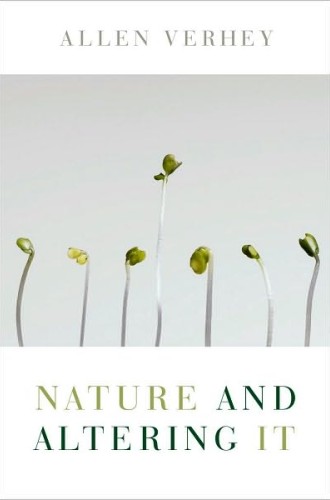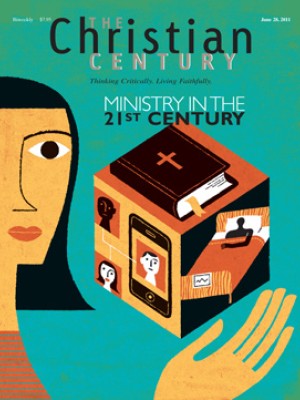Nature and Altering It, by Allen Verhey
The great naturalist John Muir once said that anything we can touch is "hitched to everything else in the Universe." He had many opportunities to reflect on this dictum as he hiked through the pristine wilderness of the High Sierra in the latter third of the 19th century. For him as for Thoreau, the natural world revealed as much of God's glory as any text of scripture.
It is incredible that Muir was able to arrive at this opinion, growing up as he did under the strict supervision of his Calvinist father. For the elder Muir, as for so many Puritans who preceded him, nature was little more than an obstacle standing in the way of the true worship of God, which is expressed as much through subduing the land as through hearing and responding to the testimony of scripture.
Read our latest issue or browse back issues.
These two extremes have shaped American attitudes toward the natural world. On the one hand is the apotheosis of nature, a product of Romanticism, in which the unblemished world beyond civilization is seen as the best hope for human salvation. On the other hand is the nearly Manichaean vilification of this same realm: it is chaos, an obstacle to human progress and an affront to the Christian faith. Between these poles lie many attempts to define what continues to elude our grasp. It is little wonder that we now suffer from a surfeit of environmental embarrassments: we cannot love and respect—let alone save—that which remains perpetually ambiguous to us.
In Nature and Altering It, Allen Verhey acknowledges the difficulty of arriving at an acceptable definition of nature, but he is more concerned with showing that our actions with respect to the natural world cannot be understood apart from the dominant narratives that inform them. As Aristotle observed, every ethos implies a mythos—every act is informed by a shared story—and in the church today too many grand narratives are accepted uncritically, even when they clearly conflict with the mythos of the Christian faith.
In the medical community, for example, many have been captivated by the recent successes of the Human Genome Project and have adopted a scientific reductionism that defines human beings as little more than the sum of their genes. From this perspective nearly any problem threatening the health of an individual can be addressed ultimately at the molecular level. Or consider the faithfulness with which many profess that the free market, if allowed to work unencumbered, can adequately attend to the economic and social needs of the global community. The stories abound, and too often they become entangled in the story that lies at the heart of the faith.
Verhey considers several of the dominant narratives that inform our actions and finds them to be "ripe for doubt." He also exposes the arrogance with which many interpreters of scripture have tried to reconcile worldly myths with the mythos of the Christian tradition. It was such a conflation that led cultural historian Lynn White Jr. to argue in a now-famous essay, "The Historical Roots of Our Ecological Crisis," that Christianity bears "a huge burden of guilt" for the environmental disasters that have beset us on all sides. Any religion that commands its adherents to "subdue the earth and have dominion over it" (Gen. 1:26), White claimed, must acknowledge that the privilege granted to human creatures has had profound implications for the current state of the natural world, which has nearly reached the limit of its divinely sanctioned subjugation.
Like many theologians before him, Verhey takes issue with White's critique, but his response contains a twist. Whereas previous defenders of the faith sought to demonstrate that White had misunderstood the historical and cultural context in which the priestly account of creation was written, Verhey focuses on the way that Christians have interpreted this text by appealing to one or more of the dominant narratives of our culture. Read through the lens of the "Project of Capitalism," for example, dominion theology cannot help but become a system of domination economics. To a certain extent Verhey agrees with White: Christians do bear a huge burden of guilt for our current environmental woes. But this does not mean that we can lay the blame at the feet of Christianity itself. Rather, the culprit is the arrogance of interpreting the biblical story in a way that justifies self-serving human ends.
In an earlier book titled Remembering Jesus: Christian Community, Scripture, and the Moral Life, Verhey emphasizes that Christian ethics proceeds by way of reminder. If every ethos implies a mythos, then it is important for Christians to regard the biblical story as normatively significant. This is as true for our attitudes toward nature and altering it as it is for our approach to sexuality, economics and social justice. The importance of this task can be affirmed with a tip of the hat to John Muir: when we tug at something in the Christian mythos, we find that it is connected to the rest of creation.
The problem, of course, lies in articulating from the perspective of faith a clear definition of what we mean when we speak about nature. We can do this, Verhey suggests, by polishing the lens of our creation theology until we perceive without distortion the world that God has made and the role that humans play as part of it. To this end, Verhey develops one of the most concise yet thorough theocentric ethics of creation care written to date, a beautifully reasoned account that provides a Christian alternative to what we too often encounter in contemporary culture: either the Romanticism of the younger Muir or the domination theology of his father.
Humans are called to reflect God's pleasure in and concern for the world. Although there are no strict prohibitions against altering nature, scripture does contain clear guidelines that should inform our every thought and deed when it comes to the question of stewardship. Salvation, Verhey writes, "is not to escape this world, this 'nature,' to some other world, but to have by God's grace a share in the renewal of the whole."
Verhey has spent the whole of his professional career affirming the importance of reading scripture in community so a complex world can be interpreted through the story of the Christian faith. He ably demonstrates in this slim volume that while the definition of nature may be ambiguous, our call as tillers and keepers of God's creation most certainly is not. If every ethos implies a mythos, then the reverse must also be true, and it is the vocation of the church to elucidate and embody the scriptural tradition regarding our place in the natural order.






